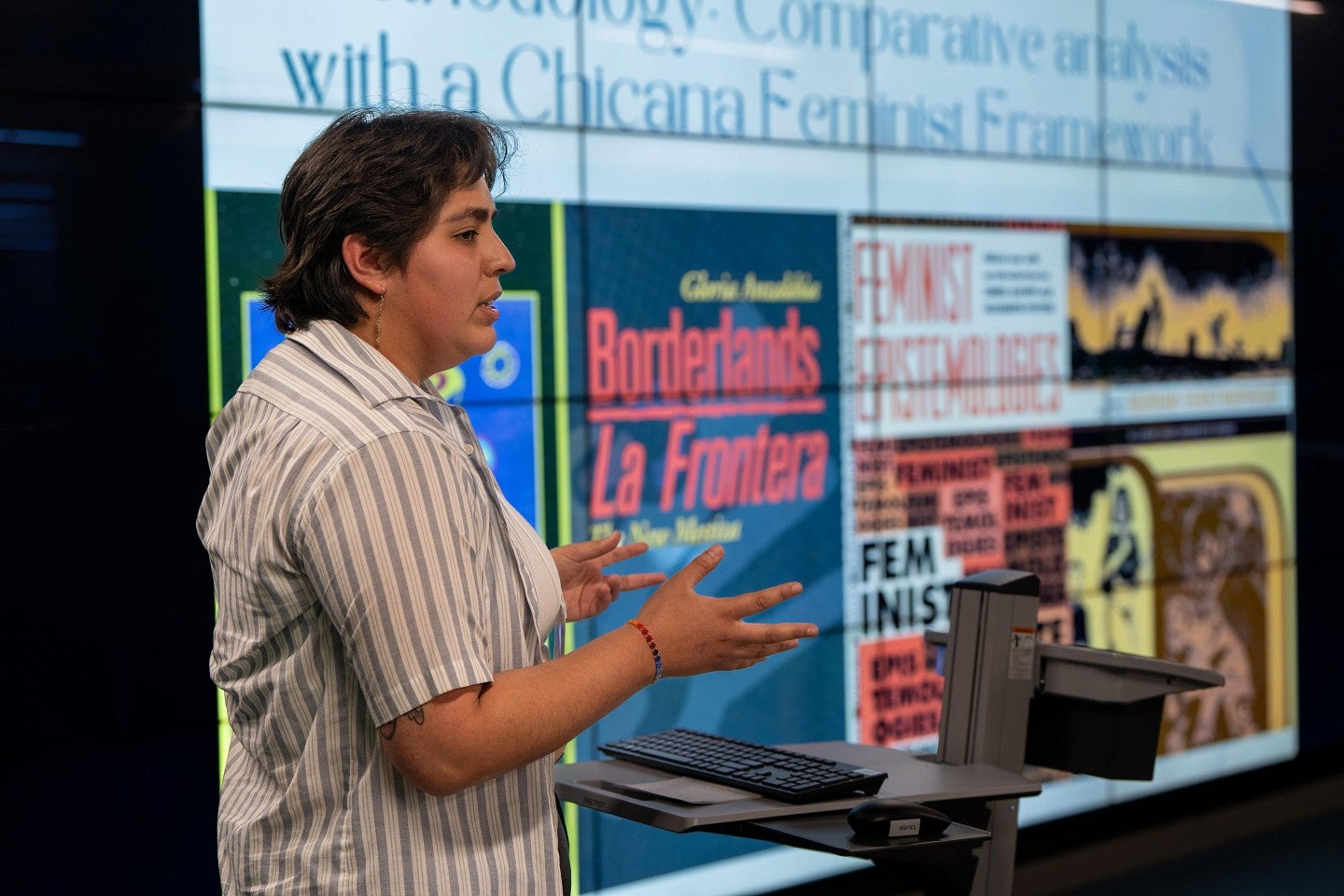The mentor’s role is vital in the undergraduate research process, and a rewarding experience. Cultivating a dynamic environment that is collaborative and productive, is a shared responsibility between the student and mentor. Setting an action plan early on that outlines the objectives, and expectations for this role will be beneficial for both student and mentor. Through this apprenticeship, the student may additionally gain valuable insight into the types of careers they may aspire to in the future.
The benefits of engaging undergraduate students in research include:
- Research mentors can change lives by providing a glimpse into the power of research, and assist students to make the transition from classroom learning to real world application.
- Students can add value to a research project through their contributions and unique perspectives.
- Mentoring young scholars can be personally fulfilling, enrich faculty research and shape the next generation of change-makers.
- Presentation of research findings by undergraduate students can be particularly effective in reaching a wide-ranging audience.
- Incorporating undergraduate students into research projects can increase productivity, and be beneficial for grant proposal competitiveness.
Identify a Project | Engage the Student | Mentor and Guide | Explore Key Resources

Identify a Project
- Determine what project or task that you will want the student to work on. Defining a specific role for the student will also foster agency.
- Presenting clear expectations (time commitment, research schedule, and any other research protocols etc.) will establish a foundation for success.
- Consider what type of training will be needed beforehand.
- Start with a simple plan then scale up as the student gains more skills and confidence.
Engage the Student
- Set up a work plan with the student and involve any other individuals who will be in the mentoring and supervision role.
- Establish a schedule for check-in meetings to ensure that all is on track.
- Encourage professional skill building by including the student in team meetings, journal clubs, research presentation opportunities.
- Train student on any necessary protocols and procedures that is associated with the research work.
- Provide productive feed-back and recommendations, and opportunity for the student to self-reflect about their experience and goals.
Mentor and Guide
- Encourage attendance at departmental seminars and campus talks to help foster learning, understanding (and appreciation) of the work on a larger scale.
- Support involvement with the Undergraduate Research Symposium where they may showcase their work to peers, and greater UO community.
- Attendance at local meetings or national conferences are valuable opportunities to expand the student’s knowledge of the field and beyond, as well as provide exposure to potential graduate programs.
- Check-in not only about the research progress, but also regarding their academic coursework and other campus commitments.
- Serve as role model for academic and professional conduct.
Explore Key Resources for Faculty Mentors
University of Oregon resources
Global STEM Education is part of the Global Studies Institute with a mission to support global STEM education and innovation in order to change the lives of faculty and students. The teaching programs are designed for STEM faculty, post-docs, or graduate students to practice cutting-edge teaching techniques, which they can immediately implement in classrooms.
The Office of the Vice President for Research and Innovation through its “Mentoring Undergraduate Research Directory“- offers a variety of information and resources related to undergraduate research, including a section on mentoring.
STEM Core (Science, Technology, Engineering and Math Careers through Outreach Research and Education) is a consortium of University of Oregon science, math and education faculty, STEM outreach and education program coordination staff, community college faculty, K-12 collaborators, STEM industry and government partners and supporters, with a mission to produce a broader and deeper pool of STEM talent in Oregon and nationally through the development of efficient and effective models for student learning and engagement, and by forging new collaborations between education faculty, K-12 educator, science researcher, mathematician, STEM industry and government partnerships.
The Teaching Engagement Program (TEP) is the University of Oregon’s faculty and graduate-student professional teaching development office. It works to define, develop, holistically evaluate, acknowledge, and leverage teaching excellence to achieve the fullest promise of a UO education. The Teaching Engagement Program supports teachers across rank and discipline, building an inclusive, engaged, and research-led campus-wide teaching culture.
Promoting diversity, equity and inclusion
Benefits and Challenges of Diversity, by Jo Handelsman and Eve Fine, University of Wisconsin, Women in Science & Engineering Leadership Institute
Boosting Science with Diversity, NovaNext PBS
Diversity Issues in Mentoring, University of Arizona
How to Navigate Cultural Diversity, Society for Neuroscience
Making a Case for Diversity in STEM Fields, Inside HigherEd
Faculty Mentor Resource List, Northeastern University (including #STEMforBLM Anti-Racist Resource List)
Additional external web resources
Five Effective Strategies for Mentoring Undergraduates: Students’ Perspectives, Council on Undergraduate Research
Madison Center for the Improvement of Mentored Experiences in Research, University of Wisconsin
Perspectives on Undergraduate Research & Mentoring, Elon University
The Role of Advising in Undergraduate Research, Penn State University
